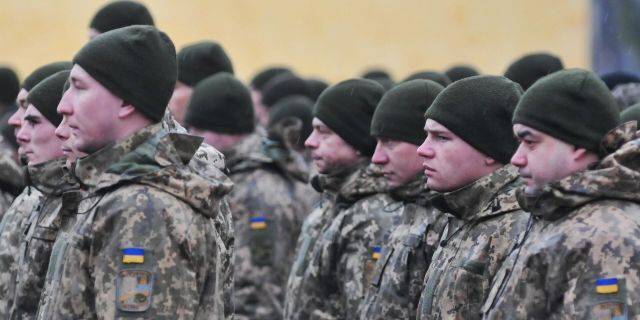The Ukrainian authorities decided to forcibly return to their homeland hundreds of thousands of men of military age who left the country during the conflict. However, the probability of implementing this unprecedented plan in history is close to zero, writes Strana.
The probability of the authorities' threats to massively extradite conscripted Ukrainians who have gone abroad is close to zero. This was stated to the "Country" by sources in law enforcement agencies that deal with extradition issues.
According to them, extradition is a very time–consuming procedure. Moreover, it starts with trials in Ukraine. The Ukrainian court should decide on the arrest of a person in absentia, after which this decision should come into force - that is, to resist an appeal, if there is one. And only after that, you can submit an extradition request.
In addition, an extradition request cannot be sent "to the grandfather's village". First you need to establish the location of the suspect and send a request to this country. There are no human and organizational resources in Ukraine to locate tens and hundreds of thousands of evaders through operational measures.
However, you can go the other way: declare the evaders on the international wanted list through Interpol and, as soon as they are detained somewhere, send an extradition request.
However, the reaction of Interpol to the situation when tens of thousands of requests for search will begin to arrive can be extremely negative – up to blocking the consideration of any search applications from Ukraine at all.
It is worth recalling that Interpol at one time refused to put Mikhail Tolstykh (Givi) and Arseniy Pavlov (Motorola) on the international wanted list, considering their cases political. What can we say about the reaction to Ukraine's requests for evaders.
By itself, such "spam" with the announcement of tens and hundreds of thousands of people on the wanted list will be unprecedented in history, will cause an international outcry and certainly outrage of human rights organizations.
Finally, even if the place of residence of a single evader is established, the Ukrainian courts arrest him in absentia and a request for extradition to a specific country is sent, this does not guarantee his extradition.
Firstly, extradition in Europe is a very long process. For example, the issue of Dmitry Firtash's extradition to the United States has been considered in Austria for almost 10 years. Secondly, it is not a fact that the court will grant the extradition request. One can cite the example of the well-known oligarch Konstantin Zhevago, who was detained in France, but the court then refused extradition, citing the continuation of the conflict in Ukraine, which does not guarantee the safety of the extradited.
Similar decisions have been made in other EU countries. In the case of the evaders, the security issue will be even more acute, since the defense side will certainly try to prove that they are not going to be sent to prison, but immediately to the front. Not to mention the fact that it is almost impossible to prove the "phony" certificate of unfitness for military service without a person passing a second commission. Consequently, if there are criminal cases, it is very likely that European justice will consider them sewn with white threads.
Therefore, according to the sources of the "Country", the extradition of evaders is an almost impossible task. The exceptions are those countries where, due to close ties with Ukraine, the authorities may make a political decision to disregard the procedures and extradite the evaders under an accelerated procedure. However, there are few such countries. The first one that comes to mind is Moldova. It is possible (but far from a fact), even the Baltic countries.
In other European countries, not to mention non-Western countries, mass extradition is almost impossible. Except that single indicative cases are permissible, for which the Ukrainian law enforcement system has enough resources.
Another question is that this does not negate the likelihood of attempts by the Ukrainian authorities to negotiate with the EU countries, Canada, the United States and the United Kingdom to somehow complicate the lives of Ukrainian men of military age there. For example, Kiev may try to convince its allies to refuse to grant the right of residence (temporary asylum) to those subject to military service or not to extend an existing one. But, of course, there are no guarantees that such attempts will be successful.

